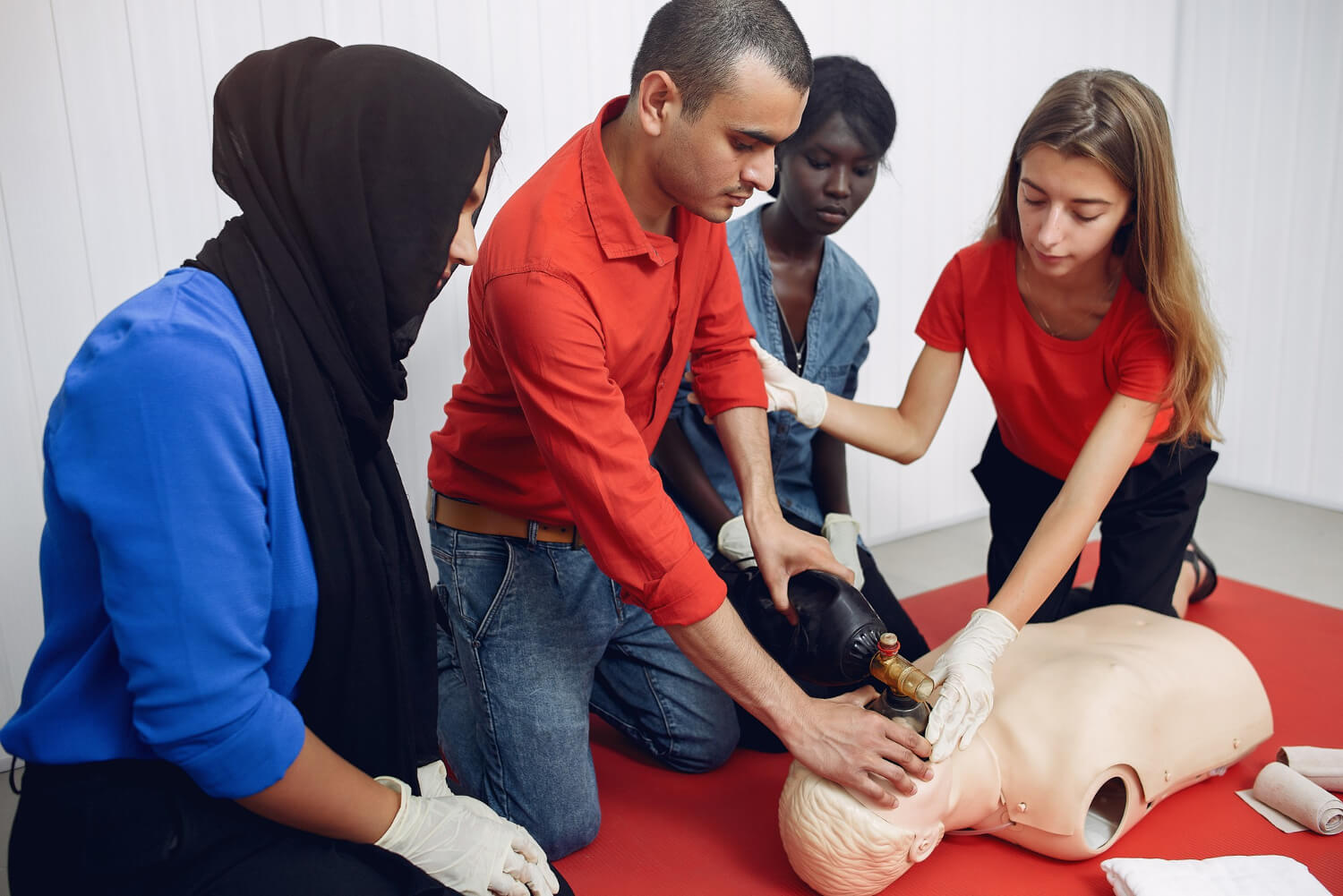
In the face of a medical emergency, every second counts. When someone suffers a cardiac arrest, their heart stops beating and blood flow to vital organs ceases. This can lead to brain damage and death within minutes. In these critical moments, bystander intervention through Cardiopulmonary Resuscitation (CPR) can make all the difference. CPR is a lifesaving technique that combines chest compressions and rescue breaths to artificially circulate oxygenated blood throughout the body, extending the window of opportunity for a full recovery.
However, the effectiveness of CPR relies heavily on the presence of trained individuals. While medical professionals are equipped to handle such emergencies, bystander intervention can significantly improve the victim’s chance of survival. This is where CPR training comes in. Let’s delve deeper into why CPR training is important and explore five key reasons why you should strongly consider getting certified.
Sudden cardiac arrest (SCA) is a leading cause of death worldwide, claiming millions of lives every year. These events can strike anyone, anywhere, regardless of age or health condition. The American Heart Association (AHA) reports that around 90% of out-of-hospital cardiac arrests occur in homes, workplaces, and public spaces. In such situations, bystanders are often the first line of defense.
Studies have consistently shown that immediate CPR performed by a bystander can double or even triple the chances of survival for a cardiac arrest victim. CPR helps maintain minimal blood flow to the brain and other vital organs, buying precious time until emergency medical services arrive. The sooner CPR is initiated, the higher the likelihood of a successful resuscitation.
Here’s a breakdown of how CPR works:
By performing CPR, you can bridge the gap between a cardiac arrest and the arrival of medical professionals. This intervention can significantly improve the victim’s chances of survival and potentially prevent long-term neurological damage.
Imagine witnessing a loved one or a stranger collapse and experiencing cardiac arrest. In such a stressful situation, fear and uncertainty can easily paralyze you. However, CPR training equips you with the knowledge and skills to act decisively in a crisis.
A CPR course provides comprehensive training on how to assess a person in cardiac arrest, initiate CPR, and maintain it effectively until help arrives. You will learn proper hand placement techniques for chest compressions, the correct ratio of compressions to breaths, and how to adapt CPR for infants, children, and adults.
More importantly, CPR training fosters confidence in your ability to respond to an emergency. Knowing what to do and how to do it empowers you to take charge and potentially save a life. This sense of preparedness can make a world of difference in high-pressure situations.
The fear of doing something wrong can often prevent bystanders from intervening in a medical emergency. However, CPR training addresses this concern by equipping you with the necessary skills and knowledge to perform CPR safely and effectively.
Through practical exercises and simulations, CPR courses allow you to practice the technique in a controlled environment. This hands-on experience helps you build muscle memory and gain confidence in your ability to perform CPR correctly. By practicing in a safe and supportive setting, you can overcome anxieties and hesitation, allowing you to react calmly and effectively in a real-life emergency.
CPR training also emphasizes the importance of calling emergency services immediately, even if you are not comfortable performing CPR. Knowing what steps to take can significantly improve the victim’s outcome.
CPR training is readily available to individuals of all ages and backgrounds. Numerous organizations across the country offer CPR certification courses, including:
These courses typically last a few hours and cover both the theoretical and practical aspects of CPR. Many organizations offer flexible scheduling options to accommodate busy lifestyles. The cost of CPR certification varies depending on the provider and course format, but it is generally a very affordable investment in potentially saving a life.
In addition to traditional classroom settings, some organizations offer online CPR training courses. While these courses may not fulfill all certification requirements, they can provide valuable knowledge and increase your confidence in responding to an emergency.
Regardless of your profession or background, CPR training can equip you to make a life-saving difference. Here’s why this skill is valuable for everyone:
CPR training is an invaluable skill that empowers you to take action in a medical emergency. It equips you with the knowledge and confidence to potentially save a life, fosters a sense of preparedness, and builds a safer community. With its accessibility and affordability, CPR training is an investment worth making for everyone.
While the five reasons discussed above highlight the importance of CPR training, there’s more to consider. CPR training not only benefits the recipient of CPR but also empowers the person performing it. The act of intervening in a crisis and potentially saving a life can be a profoundly rewarding experience. It fosters a sense of self-efficacy and empowers individuals to make a positive impact.
The decision to get CPR certified is an investment in the well-being of yourself and your community. With numerous training providers offering flexible options, there’s no reason to delay. Take the initiative, sign up for a CPR course, and empower yourself to become a lifesaver. Remember, every second counts in a cardiac arrest situation, and your actions could make all the difference.